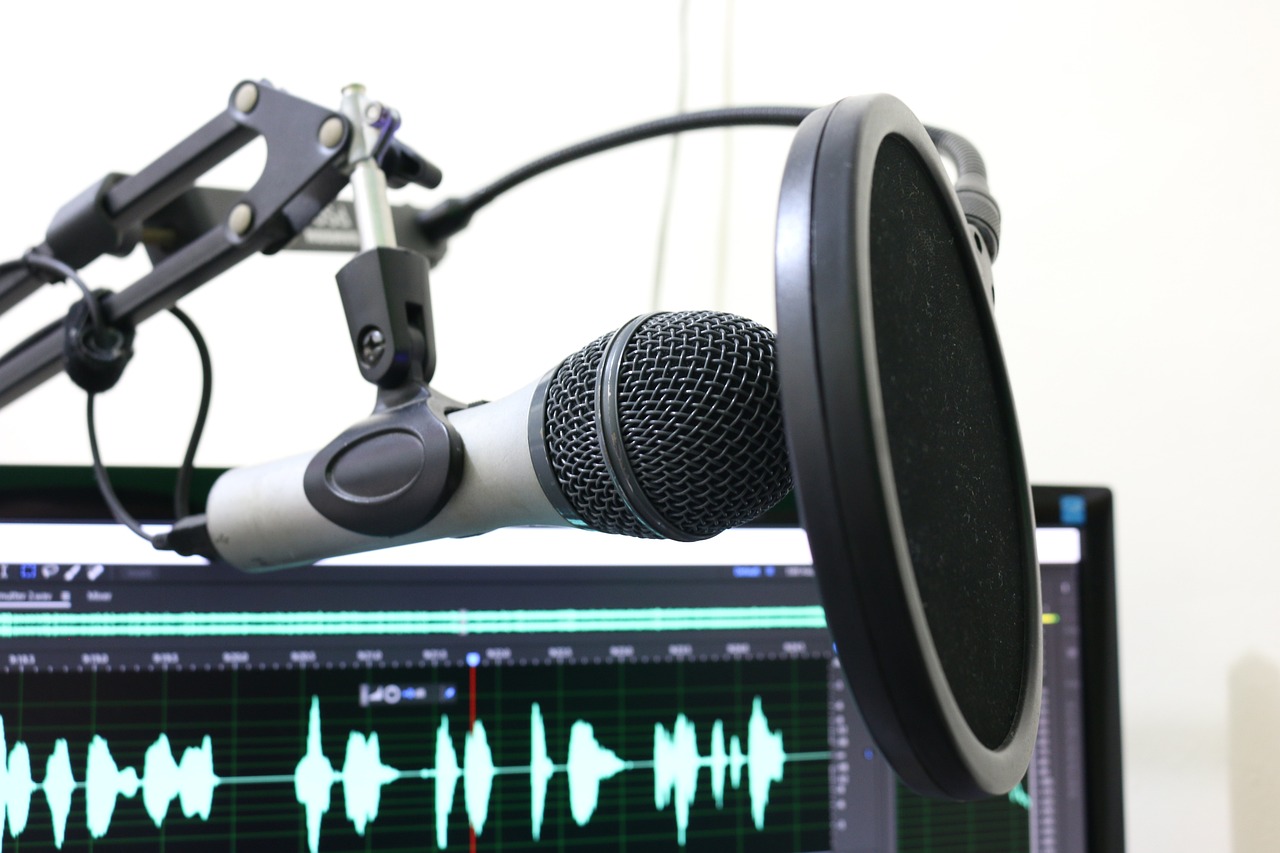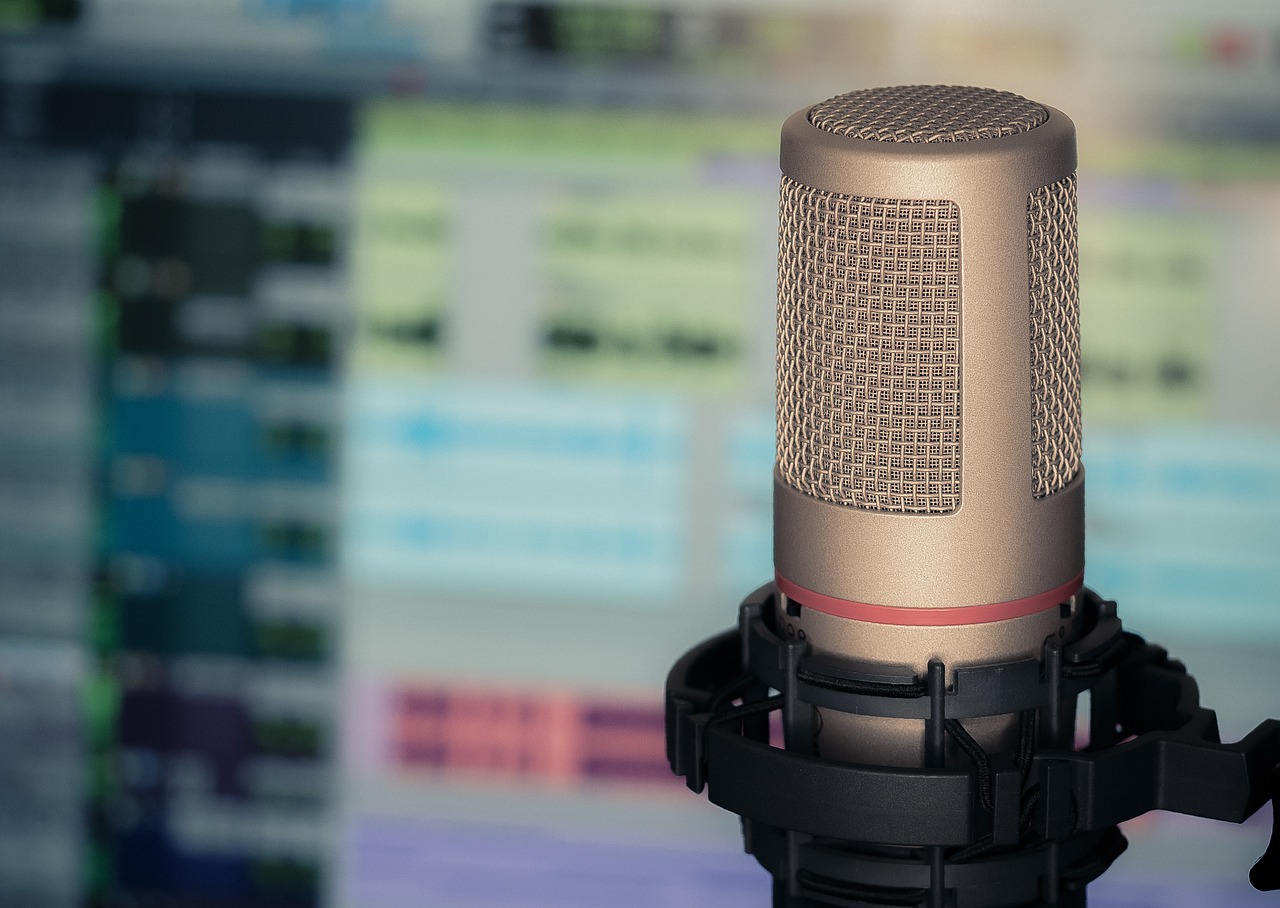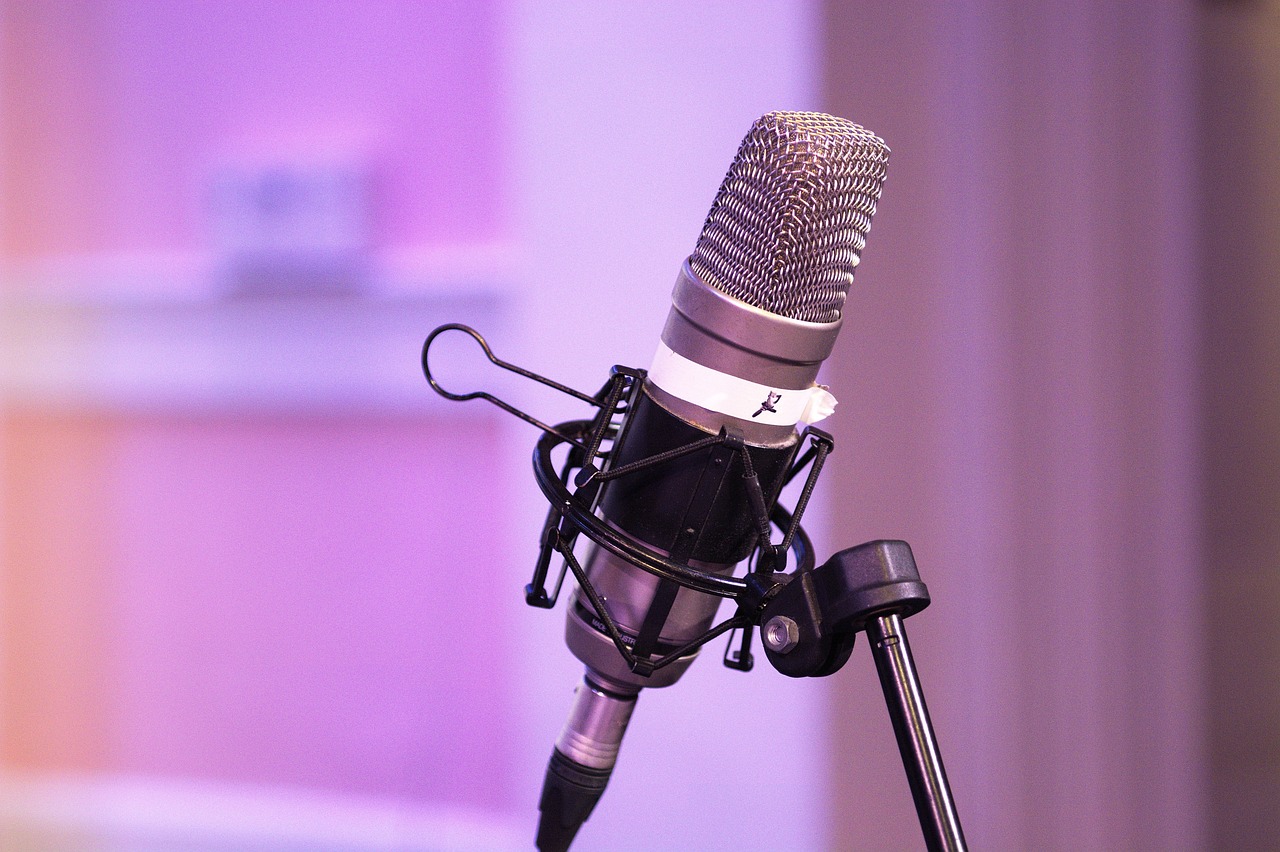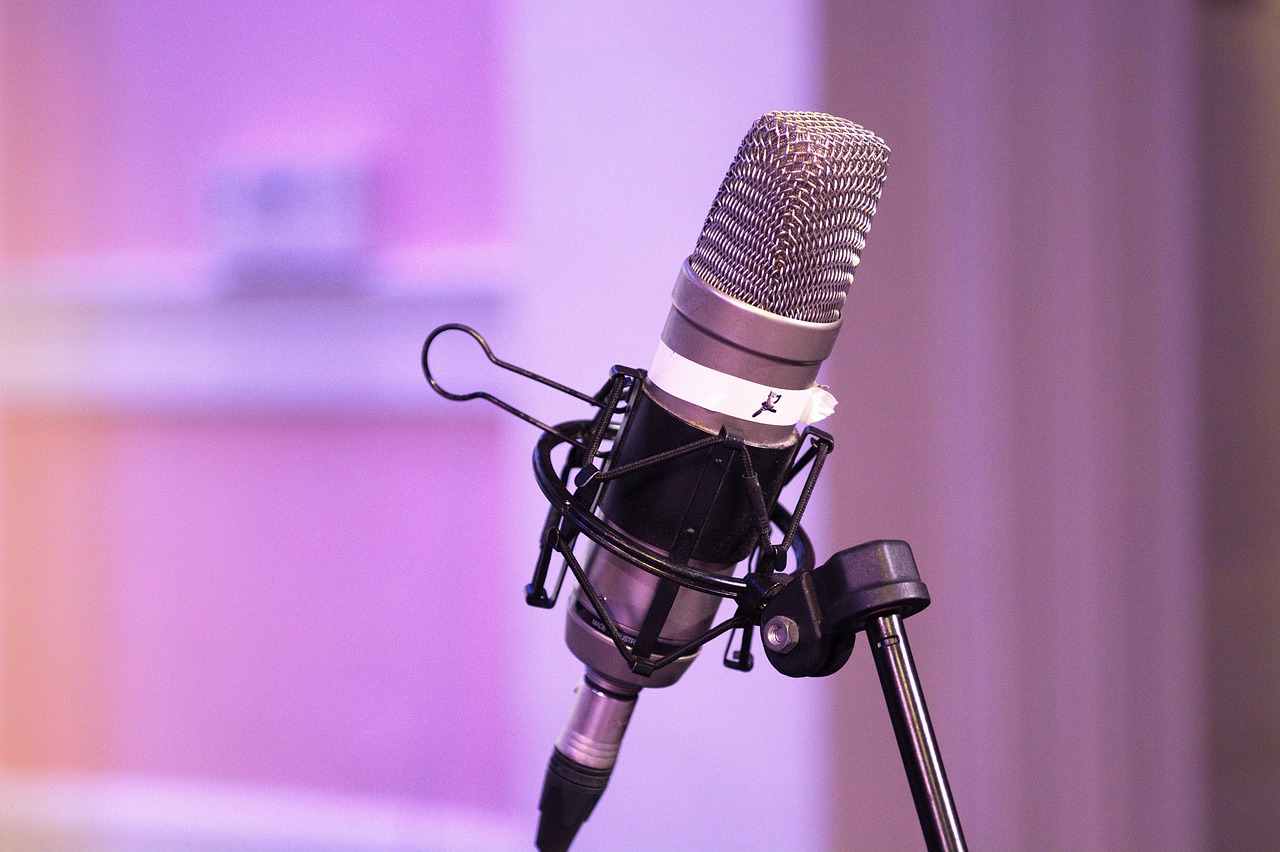Imagine being able to listen to your favorite radio shows, interviews, or storytelling sessions anytime, anywhere, and completely on your own terms. This is the magic that podcasts bring into our lives. In essence, a podcast is a type of digital media, usually audio, that allows us to subscribe, download, and listen to episodes on various topics. It’s like having your own personalized radio station tailored to your interests. Whether you’re into true crime, educational content, or just want a good laugh, there’s a podcast out there for you. Let’s explore what a podcast example really is and how it can enrich your audio experience.

Understanding Podcasts
Podcasts have become increasingly popular in recent years, providing a unique and convenient way to consume audio content. Whether you’re a podcast enthusiast or just starting to explore this medium, it’s important to understand what podcasts are, their history and evolution, as well as their significance in today’s digital age.
Definition of a Podcast
A podcast is an audio program that is delivered digitally and is primarily consumed on-demand. It is a form of media that allows individuals to create and distribute their own audio content, covering a wide range of topics such as news, storytelling, education, entertainment, and much more. Podcasts provide a platform for creators to share their perspectives, expertise, and stories with a global audience.
History and Evolution of Podcasts
The term “podcast” was first coined in 2004, combining the words “iPod” (Apple’s portable media player) and “broadcast.” Although Apple played a significant role in popularizing podcasts with the inclusion of iTunes podcast support in 2005, the concept of episodic audio content dates back even further.
Podcasts have their roots in the early 2000s with the advent of RSS (Really Simple Syndication) technology, which allowed users to subscribe to regularly updated content. This technology, combined with the increasing popularity of portable media players, set the stage for the rise of podcasts.
Over the years, podcasts have evolved from niche hobbyist endeavors to a mainstream form of media. With the advancement of technology and the widespread use of smartphones, podcasts are now easily accessible to anyone with an internet connection, enabling individuals to enjoy their favorite shows anytime, anywhere.
Importance of Podcasts in Today’s Digital Age
Podcasts play a crucial role in today’s digital age by providing a unique and personalized audio experience. They offer an alternative to traditional radio broadcasts, allowing individuals to tailor their listening preferences and explore a vast array of topics that cater to their interests.
Podcasts have also become a valuable educational tool, as experts and thought leaders utilize this medium to share their knowledge and insights. With the rise of audiobooks and audio learning, podcasts offer an engaging and convenient way to consume educational content on the go.
Additionally, podcasts have revolutionized storytelling, giving a voice to individuals who may not have access to traditional media platforms. This has resulted in a diverse range of narratives and perspectives being shared, enriching the overall media landscape.
The influence of podcasts extends to various industries, including journalism, entertainment, and marketing. Podcasts offer a unique platform for businesses and brands to connect with their target audience, build a loyal following, and establish themselves as industry leaders.
Types of Podcasts
As podcasts have gained popularity, numerous genres and formats have emerged to cater to different interests and tastes. Here are some of the most common types of podcasts:
Interview Podcasts
Interview podcasts focus on conversations with guests, typically experts or notable individuals within a specific field. They provide insights into their guests’ experiences, expertise, and perspectives. Interview podcasts are a great way to learn from industry leaders and gain valuable knowledge on various topics.
Storytelling Podcasts
Storytelling podcasts engage listeners with captivating narratives, often incorporating elements of drama, suspense, and emotion. These podcasts transport you into a different world, allowing you to immerse yourself in the stories being told. They can range from fictional dramas to non-fictional accounts of true events.
Educational Podcasts
educational podcasts offer a wealth of knowledge on various subjects, ranging from science and history to personal development and language learning. These podcasts provide listeners with the opportunity to expand their knowledge and learn new skills in an easily digestible format.
News and Current Affairs Podcasts
News and current affairs podcasts keep listeners updated on the latest events, developments, and trends around the world. They offer an alternative to traditional news outlets, providing in-depth analysis, expert opinions, and varied perspectives on global issues.
Entertainment Podcasts
Entertainment podcasts cover a broad range of topics, including pop culture, comedy, film and television, music, and gaming. These podcasts aim to entertain and engage listeners, providing a lighthearted and enjoyable listening experience.

Key Elements of a Podcast
Creating a successful podcast involves considering several key elements. Here are some essential components that contribute to a well-rounded podcast:
Podcast Hosts
The hosts of a podcast play a vital role in shaping the overall listener experience. They set the tone, guide discussions, and create a connection with the audience. Engaging, knowledgeable, and charismatic hosts can significantly enhance the overall quality of a podcast.
Content and Topics
Determining the content and topics of a podcast is crucial for attracting and retaining an audience. The content should be well-researched, relevant, and tailored to the target audience’s interests. Consistently providing valuable and engaging content is essential to build a loyal listener base.
Podcast Format and Structure
The format and structure of a podcast encompass elements such as the introduction, main segments, and conclusion. Having a clear and organized format helps the audience navigate through the podcast and enhances the overall listening experience. Whether it’s a scripted show or a conversational style, establishing a consistent format is key.
Length and Frequency
Finding the right balance of podcast length and frequency is essential to keep listeners engaged. Podcasts can range from short, bite-sized episodes to longer, in-depth discussions. Similarly, determining the frequency of episodes, whether it’s daily, weekly, or monthly, depends on the content, the host’s availability, and the audience’s preferences.
Popular Podcasting Platforms
To reach a wide audience, it’s important to distribute your podcast on popular podcasting platforms. Here are some of the most popular platforms for hosting and streaming podcasts:
Apple Podcasts
As one of the pioneers in podcasting, Apple Podcasts remains a significant platform for listeners worldwide. It provides a user-friendly interface and is easily accessible to millions of Apple device users.
Spotify
Spotify has emerged as a dominant force in the podcasting industry, with its vast user base and intuitive interface. Being on Spotify allows podcasts to reach a broader audience and benefit from Spotify’s recommendation algorithms.
Google Podcasts
Google Podcasts, available on both Android and iOS devices, allows listeners to easily discover and listen to podcasts. Being on Google Podcasts ensures your show is accessible to millions of potential listeners.
Stitcher
Stitcher is another popular podcasting platform known for its personalized recommendations and intuitive browsing features. It attracts a diverse listener base and offers valuable analytics for podcast creators.
Podbean
Podbean is a comprehensive podcast hosting platform that offers features like monetization, analytics, and a user-friendly interface. It provides essential tools for podcasters to manage their shows effectively.

Creating a Podcast: Basic Equipment Needed
To start your podcasting journey, you’ll need some essential equipment to ensure quality audio production. Here are the basic tools needed to create your own podcast:
Microphones
Investing in a good quality microphone is crucial for capturing clear and professional-sounding audio. USB microphones, such as the Blue Yeti or Audio-Technica ATR2100x, offer convenience and excellent sound quality for beginners. However, as you gain experience, you may consider upgrading to XLR microphones for more advanced audio production.
Pop Filters
Pop filters are essential accessories that help reduce plosive sounds (pops) caused by air hitting the microphone. They act as a barrier between the microphone and the speaker, resulting in cleaner and more balanced sound quality.
Headphones
Using closed-back headphones is recommended during podcast recording and editing to ensure accurate sound monitoring and help identify any audio issues or background noise. Look for headphones that provide good isolation and a balanced frequency response.
Audio Editing Software
There are various audio editing software options available, ranging from free to professional-grade. Popular software like Audacity (free), Adobe Audition, or GarageBand (for Mac users) offer comprehensive editing capabilities, allowing you to trim, adjust levels, add music or sound effects, and export your final podcast episode.
The Podcasting Process
To create a successful podcast, it’s essential to understand the podcasting process and the different stages involved. Here’s a breakdown of each stage:
Planning and Content Creation
Before you hit the record button, it’s crucial to plan your podcast episodes and develop a content strategy. Outline the topics, interview questions, or segments you want to cover, ensuring they align with your target audience’s interests. Research and prepare any necessary materials to support your content.
Recording a Podcast
Once you have your content ready, set up your recording equipment and find a quiet environment to minimize background noise. Ensure your microphone is connected correctly, and perform a sound check before starting the recording. Speak clearly, and engage with your co-host or guests to create an engaging and dynamic conversation.
Editing a Podcast
After recording, the editing process begins. Start by importing your audio files into your chosen editing software. Trim any unwanted sections, remove background noise, adjust audio levels, and add any necessary post-production elements like music or sound effects. Editing ensures a seamless listening experience for your audience.
Publishing a Podcast
Once your podcast episode is edited, it’s time to publish it on your chosen podcast hosting platform. Create an attractive episode title, write a compelling episode description, and select relevant tags or categories. Upload your episode file, add any additional metadata, and set the release date and time for your episode to go live.

Conducting a Podcast Interview
Interviewing guests can add depth and variety to your podcast. Here are some essential steps to conduct a successful podcast interview:
Finding Suitable Guests
Identify potential guests who align with your podcast’s theme or topic. Research their expertise and work to ensure they are a good fit. Reach out to them through email, social media, or professional networking platforms, clearly explaining why you would like them to be a guest on your podcast.
Preparing Interview Questions
Before the interview, create a list of well-researched and thought-provoking questions. Tailor the questions to the guest’s background and expertise, ensuring they provide valuable insights and engage the audience. Be prepared to deviate from the script and ask follow-up questions based on their responses.
Recording the Interview
Find a suitable location for the interview with minimal background noise. Ensure that both you and the guest have a good internet connection, especially for remote interviews. Perform a sound check before the interview and discuss any specific audio requirements or instructions with the guest.
Post-Interview Editing
After recording the interview, follow the same editing process as outlined earlier. Ensure that both your voice and the guest’s voice are clear and balanced. Trim any unnecessary pauses or sections and ensure a smooth flow of conversation. Pay attention to any confidential or sensitive information that the guest may not want to be included in the final edit.
Promoting Your Podcast
Once you have created and published episodes for your podcast, it’s crucial to promote and market your show to reach a wider audience. Here are some effective strategies for promoting your podcast:
Social Media Promotion
Utilize social media platforms to create awareness about your podcast. Establish dedicated pages or accounts for your podcast and engage with your audience. Share episode highlights, behind-the-scenes content, or teaser clips to generate interest and encourage listeners to tune in.
SEO for Podcasts
Optimize your podcast’s website or hosting platform page for search engines, ensuring it is easily discoverable. Use relevant keywords in your podcast title, episode titles, and descriptions to increase visibility in search results. Consider creating podcast transcripts to enhance search engine optimization further.
Cross-Promotion with Other Podcasts
Collaborate with other podcast hosts or shows within your niche to cross-promote each other’s content. This mutually beneficial arrangement exposes your podcast to a new audience and helps build credibility within the podcasting community.
Submitting Your Podcast to Directories
Submit your podcast to popular podcast directories like Apple Podcasts, Spotify, and Google Podcasts. These directories serve as a hub for listeners to discover new shows and allow you to reach a wider audience. Ensure that your podcast is properly categorized and has descriptive tags to increase visibility within the directories.

Monetizing Your Podcast
If you’re looking to monetize your podcast and potentially turn it into a source of income, there are several strategies you can explore:
Sponsorships and Advertisement
Partnering with sponsors or advertisers can be a lucrative way to monetize your podcast. As your podcast grows in popularity, businesses may be interested in sponsored mentions or advertisements on your show. Ensure that the sponsorships align with your content and resonate with your audience.
Crowdfunding and Donations
Crowdfunding platforms like Patreon or Kickstarter allow your listeners to support your podcast financially. Offering exclusive content, early access to episodes, or merchandise as incentives can incentivize listeners to contribute and help sustain your podcast.
Premium Content and Subscriptions
Consider offering premium or bonus content to listeners who subscribe or become patrons of your podcast. This could include ad-free episodes, extended interviews, or access to exclusive episodes. Create a membership program with varying tiers to provide additional value to your dedicated audience.
Merchandising
Design and sell merchandise related to your podcast, such as t-shirts, mugs, or stickers. Promote your merchandise on your podcast, website, and social media platforms, offering your audience a tangible way to support your show while representing their favorite podcast.
Podcast Examples and Case Studies
To better understand the impact and potential of podcasts, let’s explore some notable examples and case studies:
‘Serial’ – A Groundbreaking Storytelling Podcast
“Serial” is a widely acclaimed podcast that transcended the medium’s boundaries, introducing millions of listeners to the world of true crime storytelling. With its captivating narrative style and in-depth investigation into a single case, “Serial” became a cultural phenomenon, sparking discussions and captivating audiences around the world.
‘The Daily’ – An Example of News Podcasts
“The Daily” is a highly successful news podcast produced by The New York Times. It provides listeners with a deep dive into the top news stories of the day, featuring interviews with journalists and experts. With its engaging format and insightful reporting, “The Daily” has become a must-listen for news enthusiasts worldwide.
‘How I Built This’ – An Interview Podcast Example
“How I Built This” is an interview podcast hosted by Guy Raz, where he delves into the stories behind some of the world’s most successful companies and brands. Through interviews with entrepreneurs and business leaders, the podcast provides valuable insights into the triumphs, failures, and lessons learned along the way.
Case Study: The Success of ‘Joe Rogan Experience’
“The Joe Rogan Experience” is a long-form, conversational podcast hosted by Joe Rogan. Known for its diverse range of guests, including comedians, actors, scientists, and politicians, the show has amassed a massive following. With its casual and unfiltered format, “The Joe Rogan Experience” has become one of the most listened-to podcasts globally.
Lessons from Popular Podcasts
These examples highlight the diverse range of possibilities within podcasting and the importance of finding a unique niche or storytelling approach. Engaging content, captivating narratives, and influential guests play significant roles in driving the success of a podcast. By studying these examples, aspiring podcasters can gain valuable insights and inspiration for their own shows.
In conclusion, podcasts have revolutionized the way we consume audio content, offering a platform for creators and listeners to connect and engage. Understanding the definition, evolution, and significance of podcasts is essential for anyone interested in entering this dynamic and rapidly growing medium. By exploring the various types of podcasts, key elements of a successful show, popular platforms, the podcasting process, and strategies for promotion and monetization, individuals can embark on their podcasting journey with confidence and creativity. So, grab your microphone, start brainstorming ideas, and join the vibrant world of podcasting – where the possibilities are endless.
